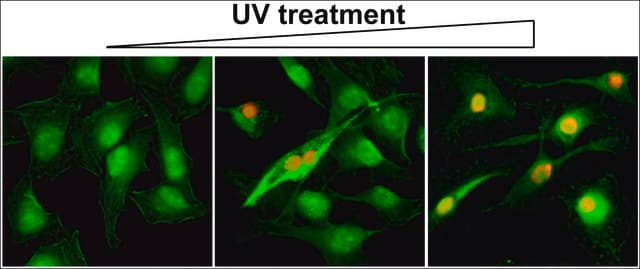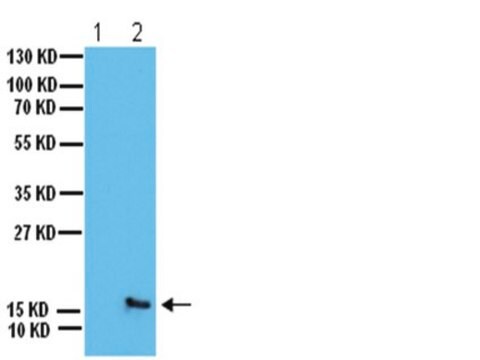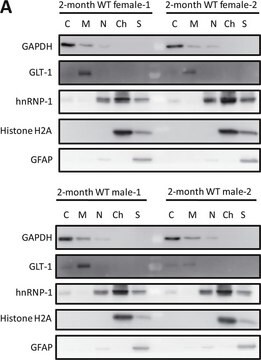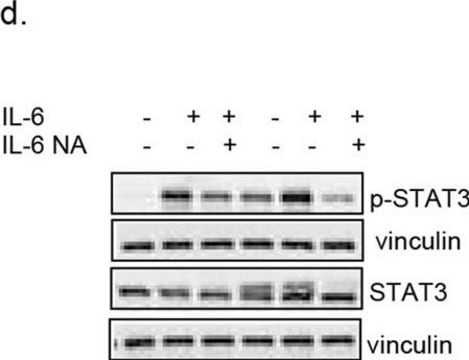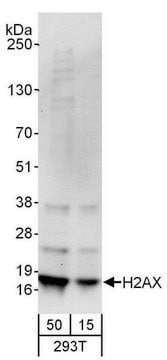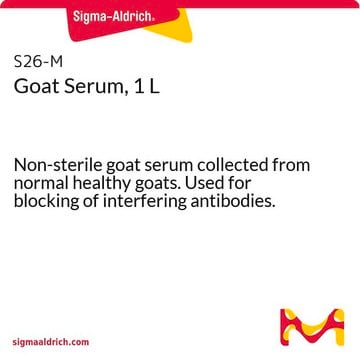05-636-I
Anti-phospho-Histone H2A.X (Ser139) Antibody, clone JBW301
clone JBW301, from mouse
Synonym(s):
Anti-phospho-Histone H2A.X (Ser139) Antibody, 05-636-I | Sigma-Aldrich
About This Item
Recommended Products
biological source
mouse
Quality Level
antibody form
purified immunoglobulin
antibody product type
primary antibodies
clone
JBW301, monoclonal
species reactivity
human, rat, mouse
technique(s)
ChIP: suitable
immunocytochemistry: suitable
immunofluorescence: suitable
western blot: suitable
isotype
IgG1κ
NCBI accession no.
UniProt accession no.
shipped in
wet ice
target post-translational modification
phosphorylation (pSer139)
Gene Information
human ... H2AX(3014)
mouse ... H2Ax(15270)
rat ... H2Ax(500987)
General description
H2A.X phosphorylation is a very rapid response to DNA damage, occurring within as little as one minute after exposure to ionizing radiation. Phosphorylation of H2A.X occurs irrespective of the cause of the DNA DSBs and phospho-H2A.X has been observed in response to environmental stresses that result in DSBs as well as programmed cellular events, including DNA rearrangement and apoptosis.
Immunogen
Application
Previous lot has been demonstrated to work in Immunofluorescence and Chromatin Immunoprecipitation: See reference (Meier, Andreas et al., 2007)
Western Blotting Analysis: 0.05-1 μg/mL of this lot detected phosphorylated histone H2A.X (Ser139) in acid extracted histone lysates from Jurkat cells treated with 0.5 μM staurosporine (Catalog # 19-123).
Immunocytochemistry: 2 μg/mL of a previous lot of antibody detected phosphorylated histone H2A.X in HeLa cells treated with 0.5μM staurosporine for 4-6 hours.
Epigenetics & Nuclear Function
Histones
Quality
Western Blotting Analysis: 0.5 µg/mL of this antibody detected phospho-Histone H2A. X (Ser139) in 200 µg in staurosporine treated HeLa cells.
Target description
Physical form
Storage and Stability
Other Notes
Disclaimer
Not finding the right product?
Try our Product Selector Tool.
Storage Class Code
12 - Non Combustible Liquids
WGK
WGK 1
Flash Point(F)
Not applicable
Flash Point(C)
Not applicable
Certificates of Analysis (COA)
Search for Certificates of Analysis (COA) by entering the products Lot/Batch Number. Lot and Batch Numbers can be found on a product’s label following the words ‘Lot’ or ‘Batch’.
Already Own This Product?
Find documentation for the products that you have recently purchased in the Document Library.
Customers Also Viewed
Our team of scientists has experience in all areas of research including Life Science, Material Science, Chemical Synthesis, Chromatography, Analytical and many others.
Contact Technical Service


